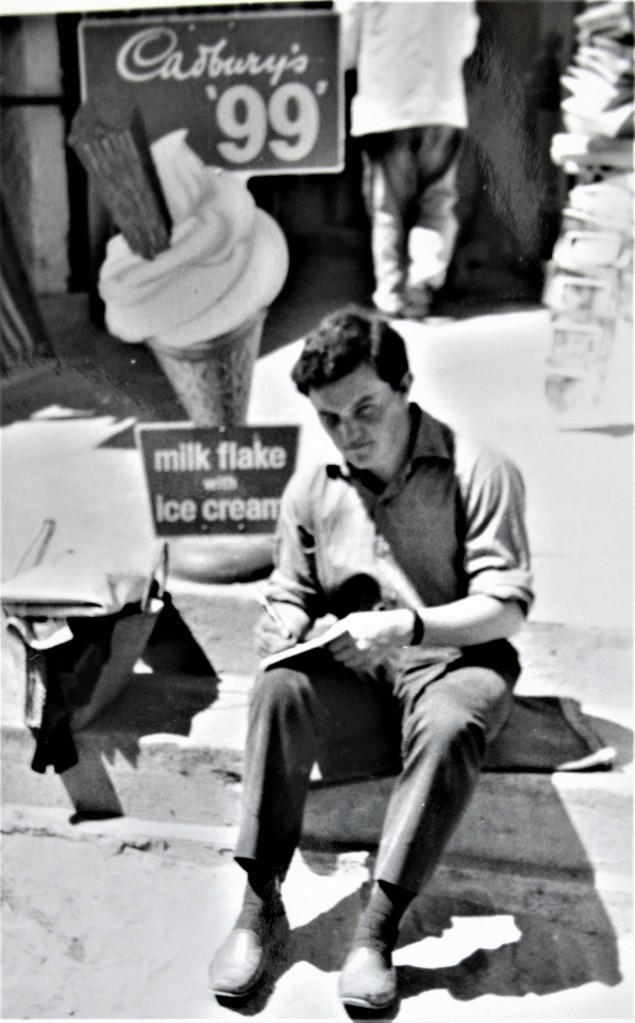On Being Welsh
in a land ruled by the English
On Being Welsh
in a land ruled by the English
is available at the following links:
https://www.amazon.ca/dp/9388319842
https://www.amazon.com/dp/9388319842
A shortened version of this manuscript was awarded first place in the David Adams Richards Awards for a prose manuscript by the Writers’ Federation of New Brunswick, 2020.
Individual stories have been published in Anti-Lang (M. T. Head), West Coast Short Story Slam (Teeth), and on commuterlit.com (Remembrance Day).
Individual stories have won awards as follows: Butterflies (Honorable Mention, Atlantic Short Story Competition, Writers’ Federation of Nova Scotia), Auntie Gladys (Finalist, Wordfeast NB, Postcard Stories), Message in a Bottle (Honorable Mention, WFNB Creative Non-Fiction), The Key (Finalist, CBC Short Story Competition), Letting Go (First Place, WFNB Douglas Kyle Memorial, short story).
I would like to thank Lucinda Flemer, Primum Mobile, the first mover, who brought together the KIRA artists and turned them into a creative community. These artists include Geoff Slater and Chuck Bowie, both of whom have influenced the writings in this book. A special thank you must go to Ginger Marcinkowski, my Beta reader, who really deserves an Alpha Grade for all her help and understanding.
I would also like to thank Dr. Karunesh Kumar Agarwal (Managing Editor) Cyberwit.net for his editing skills and his invitation to participate in this poetry series.
Donna Morrissey, award winning Canadian author and judge of the 2020 D. A. Richards Award, wrote the following about my winning submission.
Judge’s Judgement: “This writer’s prose is eloquent, lyrical and beautiful. His stories are disturbing and memorable. It is an evocative journey through the deeply seeing eyes of an old man, and back through his tormented and deeply felt self as a beaten boy. There were times I held my breath against his suffering, and times I applauded his courage to keep on living. At all times I was held by the strength of such writing as would allow me those sparse and limited visuals to the bruising of the flesh whilst leading me directly into the tendered heart. Congratulations.”
The Story: Set in Tara Manor, a boutique hotel in St. Andrews, New Brunswick, the narrator searches for a story he can write. He rejects the stories and myths of other people and indigenous races, only to discover that he must be the subject of his own tale. It is a story of childhood abuse, first at the hands of his own family and then in Catholic and Protestant boarding schools in Wales where he was sent at the early age of six. It tells of a growing self-distancing from the world, including self-harm and attempted suicide, and then of self-discovery, understanding, and self-forgiveness, far from his Welsh homeland, in the Maritime beauty of Atlantic Canada.
Editor’s Comment: No doubt, here in these poems we are impressed by the ease and strength of the rhythm. Several of these poems show the passionate flight of profound imagination. The poems have poignant force of true feeling. All poems are irresistibly powerful.
Author’s Comment: Poems or stories? Both really, for On Being Welsh is composed of poetry written, not in verse, but in prose. Prose poems then, or poems in prose. How could I write anything but poetry when I come from the same town in Wales as Dylan Thomas and Vernon Watkins. I too was born with music in my heart and poetry on my lips.








